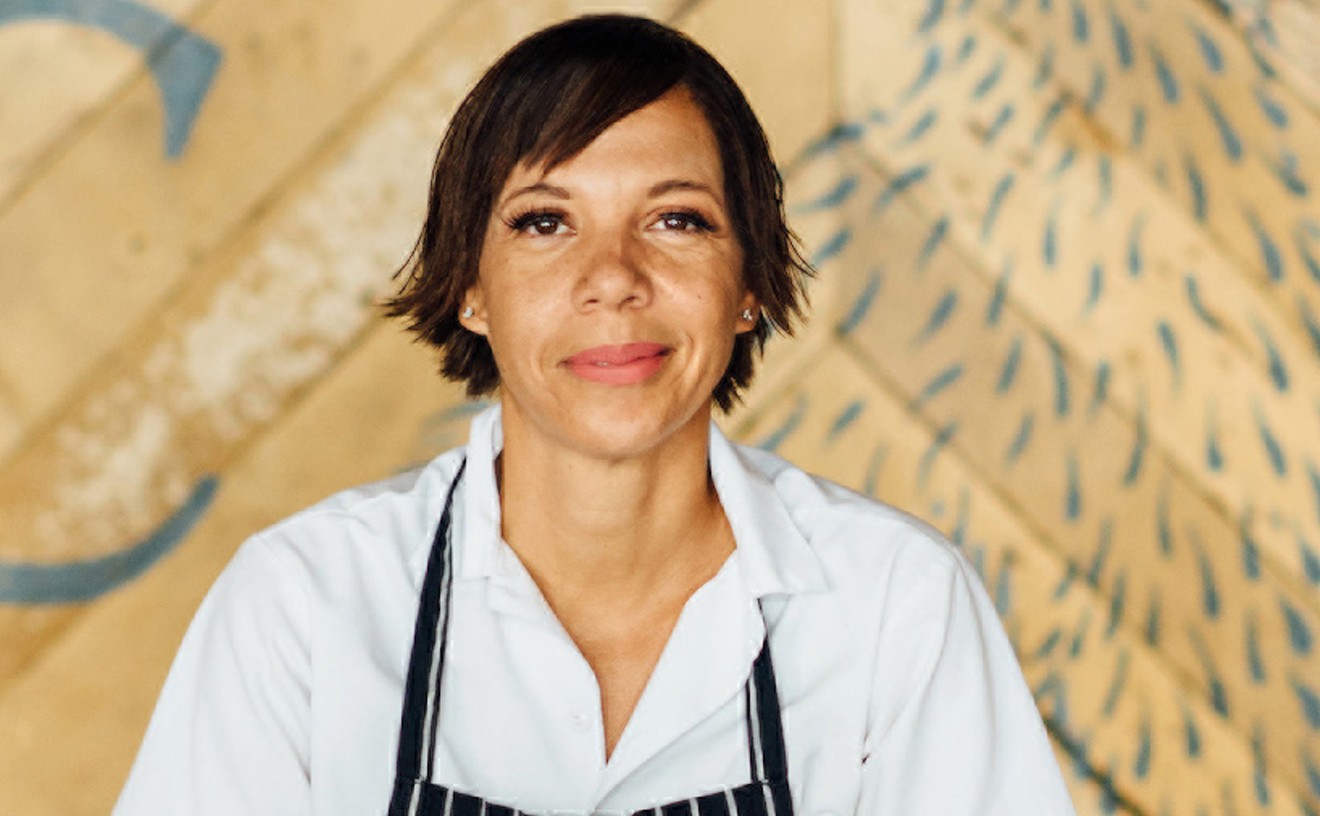But horticulturist Nancy Roe and her husband, Charlie, of Farming Systems Research, specialty growers who started producing organic vegetables on this 42-year-old farm in Boynton Beach only last October, don't have the time to pick all the ripe heirloom tomatoes, let alone concentrate on appearances. Nor do they have the money to invest in extras, when they've only just purchased a used mechanical washer for cleaning the vegetables. Indeed the three secondhand refrigerated trucks they bought to deliver the produce still read "Otis Spunkmeyer" on them and probably will for some time.
The Roes have quite a bit more to worry about. For one thing there's every farmer's archenemy: the cold snap. And we've seen quite a few of those this winter season. Just covering the beds with hoops and plastic or hotkaps (little hoods that protect single plants) can be so labor intensive that the costs of producing a crop of, say, tomatoes can outweigh the retail.
Then there's silverleaf, a problem caused by whitefly feeding that affects squash, and other diseases like it. Since the Roes don't use pesticides other than BT and copper, which are both approved for organic farming, getting rid of or preventing pests can be a pesky undertaking.
Most important, though, and constantly on Nancy Roe's mind, is how long Farming Systems Research will be able to produce. For now the organic system is being sponsored by Ted and Trudy Winsberg, the original owners of Green Cay Farm. For the past 40-odd years, Green Cay grew green bell peppers on its 330 acres. Growing a single crop is machine-friendly and allows for simplified planting and picking as well as good yield. But the area in which the farm is located, between Boca Raton and Delray Beach in Palm Beach County, has been slowly transformed into suburbia. Farmers have sold their land to real estate developers for enticing prices, and the Winsbergs soon found themselves going the veggie route solo.
Fortunately for vegetable lovers (not to mention those concerned about the environment) Ted Winsberg has always had a stubborn philanthropic streak. He hired people no one else would take a chance on. He "sent [employees'] kids to college if they wanted to go," Nancy Roe says. And in 2000, when he was forced to make a decision about his farm, he sold it to the county for a pittance on the terms that they would preserve it and transform it into public-access wetlands.
Winsberg did, however, keep about 80 acres for farmland. A commercial herb farm leases most of the acreage at the moment. The Roes operate between six and twelve acres. Nancy Roe, who earned a Ph.D. in horticulture from the University of Florida in 1994, estimates that they have about two more seasons to make enough of a profit to sustain the business. "We have production, but the packing system isn't up. The most people we have working is six, and Ted pays most of the crew. He doesn't charge us rent of the land. Ted and Trudy are like patrons of the arts."
Ironically the only thing the Roes don't have to gobble Pepcid for are the customers. Between subscriptions (which public consumers can buy and in turn receive a weekly box of harvest), farmers' market stands, and local restaurants like those in the Breakers hotel, "demand exceeds supply," Nancy Roe admits.
Clearly folks like Green Cay produce for its pesticide-free goodness. But they also crave it for its diversity. As noted on the farm's Website (www.veggies4u.com), "Nancy has this problem -- she loves to grow new and different varieties. It drives Charlie and our employees crazy -- they wonder who is going to want a yellow ruffled tomato or four colors of cauliflower."
Well, apparently the more creative chefs around town, who may be in the market for Armenian cucumbers, pink Machiaw eggplant, or French breakfast radishes, do. The Palm Beach Grill has a standing order for a particular striped beet, which Nancy pulls out of the ground and slices open to show the pinwheel structure of the bicoloring. She says she enjoys servicing restaurants and is willing to attempt any kind of crop a chef wants to conscript. Hence the countless flats of microgreens, Honey-I-Shrunk-the-Plants versions of lolla rossa, wrinkled cress, royal oak, and tango. These tiny lettuces, all the rage these days in the high-end eateries, must be trimmed with scissors, and it takes seven trays to make one pound of micromix.
The Roes aren't only concerned with their own vegetables. Nancy Roe and fellow UF doctorate Monica Ozores-Hampton, the staff horticulturist at the Miami Beach Garden Conservancy, work together to develop programs for other farmers. By 2005, native Chilean Ozores-Hampton tells me, the most common chemical fumigant, metal bromide, will be outlawed. The chemical has eaten away the ozone layer, and each year (since 2000) farmers are required to cut back on its usage by 25 percent.
"Conventional farmers are looking for other chemicals to use," Ozores-Hampton says. But both Roe and Ozores-Hampton, just by virtue of being women in the field of horticulture, are far from pedestrian. Together they author chapters of books and present papers on composting (taking urban vegetative waste like lawn clippings and palm fronds and turning it into natural fertilizer); composting complies with Commoner's second informal law of ecology: "Everything has to go somewhere." And after winning a grant from the United States Department of Agriculture, Roe and Ozores-Hampton have applied and are conducting experiments into solarization, a procedure that involves treating the land using plastic sheets and the sun to kill weed seeds, microscopic worms, and fungi.
As a result both Roe and Ozores-Hampton have grasshopper hopes of a bright vegetable-laden future. Obviously they are convinced that if Commoner's third law -- "Nature knows best" -- is continuously applied, they may be able to circumvent the last one. For while "there is no such thing as a free lunch," certainly there is such a thing as a chemical-free one.










